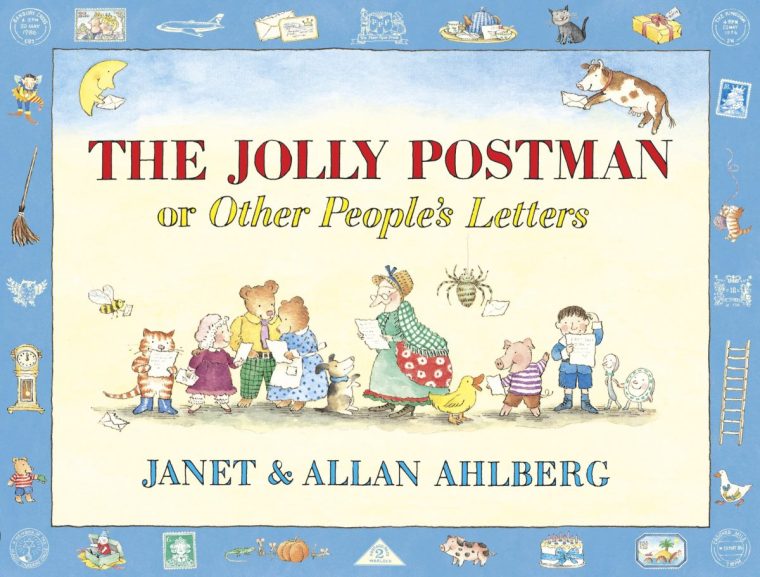The Jolly Postman, Bye Bye Baby, Please Mrs Butler – he taught me how to read, and what it means to treasure a good book
When I was three, my mum recorded me reading Janet and Allan Ahlberg’s Bye Bye Baby to teach child language acquisition to a group of A-Level students.
I wasn’t really “reading”, of course – the cassette tape, much treasured and now converted to mp3, mostly involves me desperate to show off that I remember the “sad story with a happy ending” about a baby who sets off one day in search of a mother, relishing repeating its lines like, “I am a baby with no mummy, will you be my mummy?” and putting on voices – “no, but I’ll be your clockwork hen” – while my one-year-old sister sits in silence, occasionally taking out her dummy to point at a page and grunt, “in de baf” (in the bath).
It’s only about 15 minutes long but – and forgive me for getting sentimental – of a story with gorgeous use of language, heartbreaking plot, and happy ending that gave small children so many complex thoughts and emotions to talk about, it feels like a perfect record of how children fall in love with books, and learn what it is to be a reader.
Ahlberg was always a favourite in our house. Obviously there were the timeless Peepo and Each Peach Pear Plum when I was really tiny, then the mischievous Burglar Bill, Funnybones, Cops and Robbers and Mrs Lather’s Laundry and the unmatched Jolly Postman books, and then the little hardback Red Nose Readers, with Colin McNaughton. When I got to primary school, I moved on to the poetry collections Please Mrs Butler and Heard It in the Playground – encouraged by one teacher who would end every lesson with one of their poems, subbing in the names of children in the class. We would tremble with excitement, hoping today would be our turn.
Ahlberg, who has died at the age of 87, just understood children. His stories gave us the unexpected, whether they were about household items (as in The Baby’s Catalogue) or fairy tale and nursery characters, he would bring together the familiar and the magical in a child’s world, and show them life was both. I recognise that wicked witch – what’s she having for breakfast?
With The Jolly Postman, he brought that magic literally into your own home, with letters you could, thrillingly, hold in your own hands.

Some children’s authors simplify and patronise. Ahlberg would do the opposite – tell stories with just the right amount of peril, endless silliness, load up every page with pictures and characters and so much busy, unpredictable life that curious children could never run out of new things to notice and point at and explain and question – giving new discovery to every re-reading (he also inserted cultural references and a bit of post-war nostalgia for the parents).
Sure, his stories might have a message in there about right and wrong, but instead of preaching he was playful – appealing to children’s delight in naughtiness and their love to quote things (picture Burglar Bill out on the rob at night whispering to himself: “I’ll have that”).
He’d weave sophisticated rhyme – “Ho ho for the robbers, the cops and the robbers, ho ho!” – with boisterous onomatopoeia – “Crash! Bang! Wallop!” or, in Mr Biff the Boxer, from the Happy Families series, “they biffed and bopped each other out” – that made them even more exciting, aloud. And he offered children lavish, luscious language just as they were learning to speak, when so many other books only gave them monosyllables.
Most importantly, he knew that children deserve stories with just as much humour and heart as good adult ones. Those like me who Allan Ahlberg taught to read still cherish this gift as we have grown up, and will remember him with every other good book we come to love.
